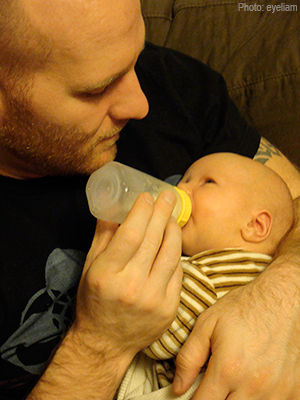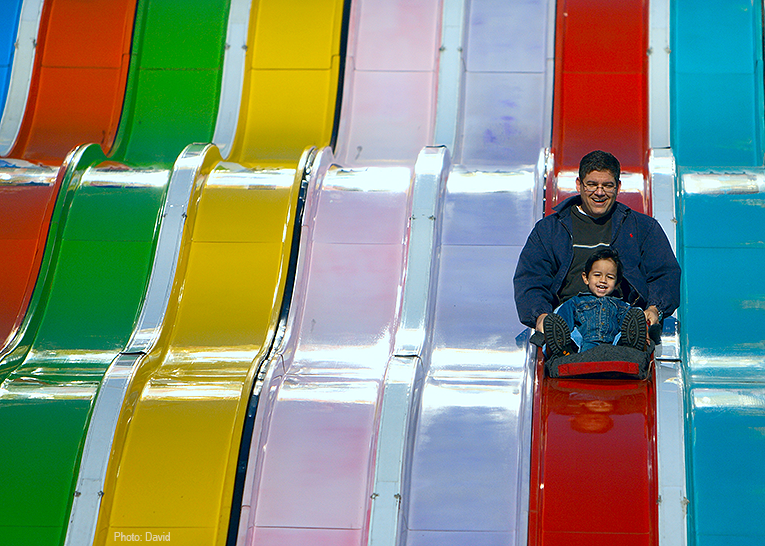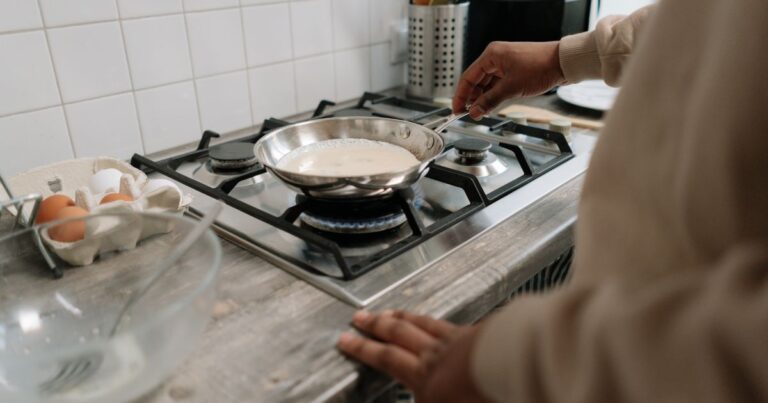When we think about Father’s Day, it’s natural for us to just think back to our childhoods: making our dads breakfast, attending family picnics, or drawing elaborate cards with our cherished 100-pack of crayons. Personally, my family used to go fruit picking and then my dad and I would make a pie for everyone to eat for dessert! Every family has their own unique Father’s Day traditions.
This Father’s Day, I’d like to recognize and honor all that our fathers have done for us—and that includes bringing us into this world! The ability to create a child is one cherished by parents, and we must ensure that young boys have the opportunity to have a child in the future if they so choose. The health and safety of young boys, our future fathers, is a paramount concern for all families.
That’s why I’m so concerned about a group of chemicals called phthalates. They’re “plasticizers”, meaning they provide flexibility and durability to various products with plastic in them. They come in a range of shapes and sizes, with complex formulas. Examples include DEHP, DBP, BBP, DiBP, DiDP, DiNP and DnOP. They’re ubiquitous in the modern world: in our clothes, perfumes, food packaging, children’s toys, and in our vinyl flooring (Psst: Tell Menards to get phthalates out of vinyl flooring they sell). Phthalates may be common, but their harmful effects are still something we have to be worried about. That’s because exposure to phthalates can damage young boys’ ability to have children by disrupting their hormones.
 When young boys are exposed to phthalates—usually through breast milk, retail cow’s milk, infant formula, or plastic in their toys or food containers—it begins to affect their endocrine system. Phthalates are a form of hazardous chemical called an endocrine disruptor, meaning the chemicals block or change the body’s ability to secrete the hormones that help us grow. The immature male reproductive tract is the most sensitive system to phthalate exposure. Studies have found that phthalates have far-reaching effects on young boys’ reproductive systems: decreased testosterone, undescended testes, decreased sperm count, decreased anogenital distance (distance between the anus and the base of the penis), and delayed puberty. All of these symptoms can combine to make it extremely difficult for boys to have children in the future.
When young boys are exposed to phthalates—usually through breast milk, retail cow’s milk, infant formula, or plastic in their toys or food containers—it begins to affect their endocrine system. Phthalates are a form of hazardous chemical called an endocrine disruptor, meaning the chemicals block or change the body’s ability to secrete the hormones that help us grow. The immature male reproductive tract is the most sensitive system to phthalate exposure. Studies have found that phthalates have far-reaching effects on young boys’ reproductive systems: decreased testosterone, undescended testes, decreased sperm count, decreased anogenital distance (distance between the anus and the base of the penis), and delayed puberty. All of these symptoms can combine to make it extremely difficult for boys to have children in the future.
We encounter different phthalates every day, and they combine in our bodies at low doses to produce significant harm, as if we had been exposed to just one phthalate at high levels! But, it’s not a hopeless crusade to keep children protected from this harmful chemical. They’re the most likely to have health problems from exposure to phthalates, but there are some relatively easy ways to reduce their exposure.
How you can reduce exposure
- Children are mainly exposed to phthalates through their diet. When a parent heats up food or drink for their child in a plastic container, phthalates can leach in. I’d recommend not reusing or microwaving carryout or frozen meal containers. When heating up a meal, it’s best to place microwave-safe plastic wrap loosely over the food so steam can escape, making sure the plastic does not touch the food. If you’d prefer not to use plastic at all, wax paper or paper towels can also be used to prevent splatter in the microwave.
- Try to only purchase toys that don’t contain phthalates. Children aged 3-12 months are at the highest risk for exposure from mouthing plastic toys. It’s best to stay away from plastic toys altogether if possible because specific quantities and types of phthalates may not be public information and often are not listed on product labels. Experiment with alternatives to classic children’s products! For your baby, try carrot or celery sticks instead of plastic teethers. Have your child play with wooden blocks rather than Legos.
- Be aware of how you’re serving your family’s food. If they’re old enough, have children drink from a glass instead of a plastic cup. Cook frozen snacks on ceramic plates. Be mindful of what you’re packing their lunches in; perhaps send them with paper or ceramic reusable plates and utensils instead of plastics. Wrap sandwiches in recycled wax paper or aluminum foil. Stainless steel water bottles and bento box-style containers can avoid waste and phthalates.
- Join with Safer Chemicals, Healthy Families to improve federal regulation of phthalates. We’re working on #RealReform for the health and safety of families across America— Click here to take action.
It’s always important to be aware of the unsafe chemicals we encounter in our daily lives. Together, let’s spread awareness about the dangers of phthalates and ensure that our young boys can, one day, become our country’s future fathers.




